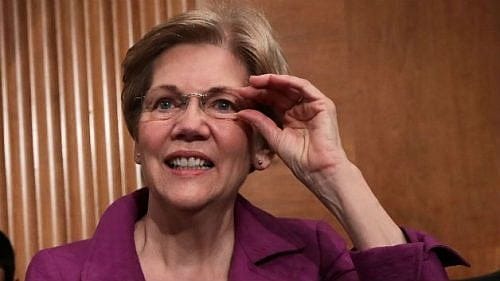Elizabeth Warren Doesn’t Like Electoral College Because She Can’t Get Tenure There

Our irony-proof senior senator announced she wants to get rid of the Electoral College while campaigning in one of the least urban states in the country.
U.S. Senator Elizabeth Warren (D-Bern), a presidential candidate, made the comment Monday night at a CNN Town Hall broadcast on the campus of Jackson State University, a historically black college in the capital of Mississippi.

